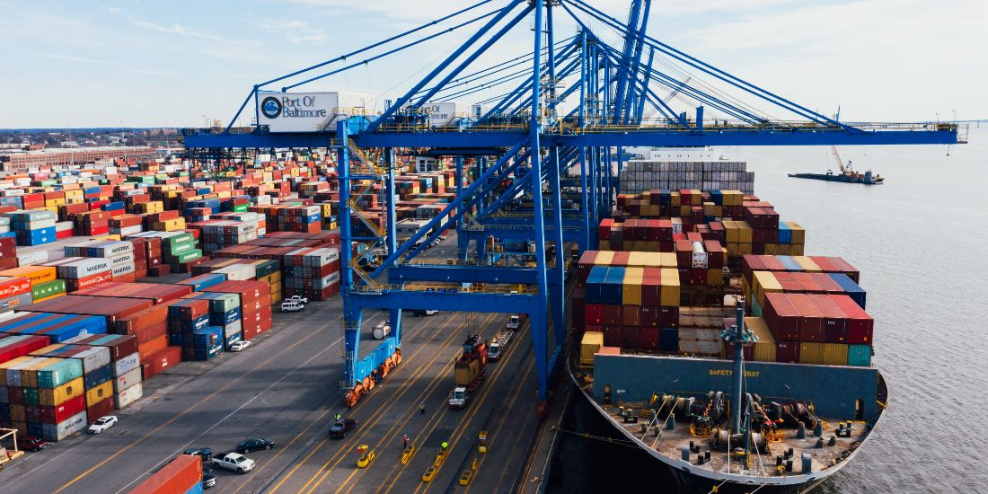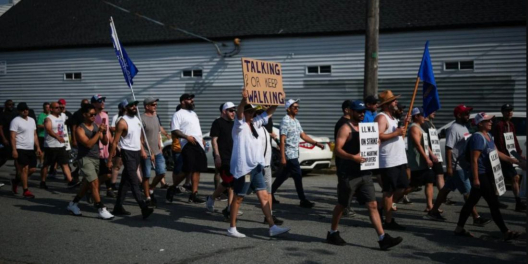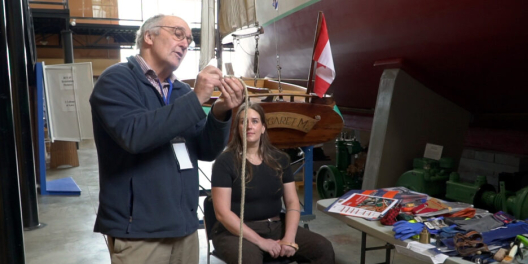Maritime jobs are essential to living on an Island. We’re incredibly reliant on imports, and the International Longshore and Warehouse Union (ILWU) workers help make our lifestyles possible.
Longshoremen are the workers that load and unload all the cargo ships that bring us the food and goods we need on the Island. Their work includes loading and unloading shipping containers, handling timber and lumber, and dealing with general cargo. They also tie up cruise ships at Ogden Point.
Longshoremen were one of the professions that had to work even harder than usual throughout the pandemic.
“Longshore workers kept this province and the country running during the pandemic,” the union said. “We worked in difficult and hazardous conditions to ensure that the communities where we live, and all Canadians, had the necessary supplies and personal protective equipment to defend against the COVID-19 virus.”
Despite their efforts, 99 percent of their workers feel they’ve been gipped and voted to threaten a strike.
“The BC Maritime Employers Association have repaid our hard work and dedication with demands for major concessions. Their only objective is to take away rights and conditions from longshore workers after having gorged themselves on record profits during the pandemic.”
The union, representing all port workers in British Columbia, has issued a 72-hour strike notice, and its members are ready to take job action Saturday.
The strike notice affects about 7,400 terminal cargo loaders and 49 of the province’s waterfront employers at more than 30 BC ports.
On the Island, it would completely shut down the ILWU location in Chemainus and halt many separate operations.
At least 120 full-time and 100 contract ILWU workers would stop moving the products we need to keep store shelves on the Island stocked.
Negotiations between ILWU and BCMEA started in February to reach an agreement before their contract expired at the end of March.
Both sides had been in a cooling-off period, but that ended on June 21.
The union said in a statement Wednesday that contracting out, port automation and cost of living are critical issues in the dispute.
The Employers have not commented on the strike notice but said in a statement Tuesday that both sides continue to meet with the assistance of a federal mediator.
Bargaining was expected to go into next week. Philip Davies, a transportation economist and principal of Davies Transportation Consulting Inc, told Times Colonist that cutting a deal will be a “tactical and strategic game.”
Davies said the union’s counterparts on the US West Coast just reached a rather generous deal.
“Over the pandemic, the shipping lines were making huge profits, and I think the longshoremen certainly felt that they should share in that bounty,” he said.
Hard bargaining tactics aren’t uncommon when seeking multi-year deals, and he said dock workers on this side of the border are just as aware of how vitally important their job is.










